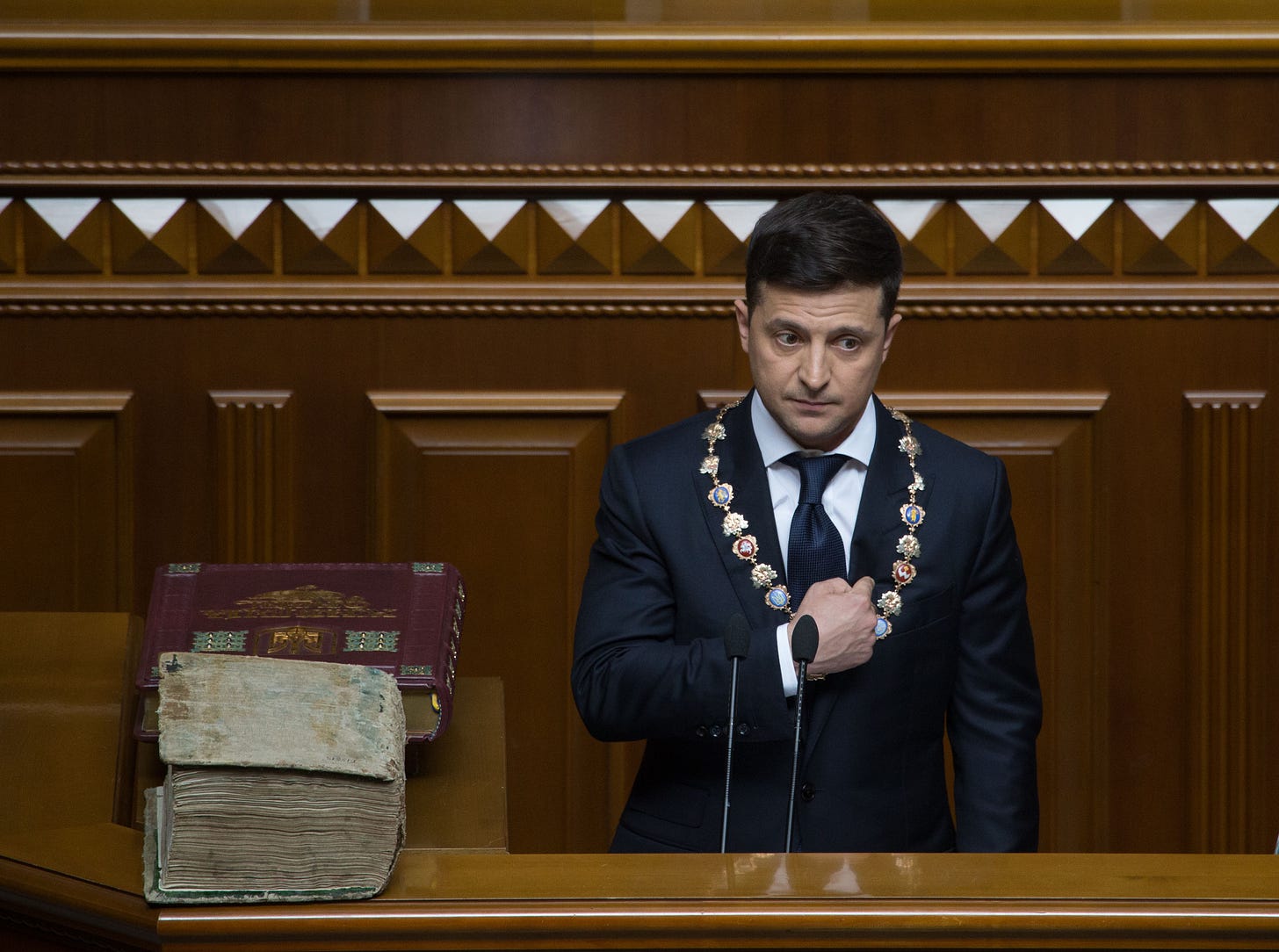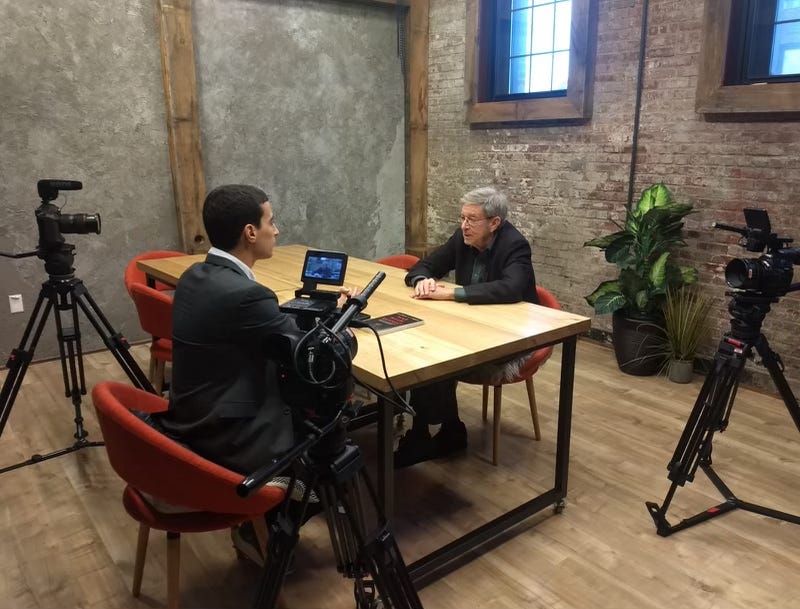Siding with Ukraine's far-right, US sabotaged Zelensky's historic mandate for peace
In 2019, Zelensky was elected on an overwhelming mandate to make peace with Russia. As Stephen F. Cohen warned that year, the US chose to side with Ukraine's far-right and fuel war.
On a warm October day in 2019, the eminent Russia studies professor Stephen F. Cohen and I sat down in Manhattan for what would be our last in-person interview(Cohen passed away in September 2020 at the age of 81).
The House was gearing up to impeach Donald Trump for freezing weapons shipments to Ukraine while pressuring its government to investigate Joe Biden and his son Hunter. The Beltway media was consumed with frenzy of a presidency in peril. But Professor Cohen, one of the leading Russia scholars in the United States, was concerned with what the impeachment spectacle in Washington meant for the long-running war between the US-backed Ukrainian government and Russian-backed rebels in the Donbas.
At that point, Ukraine's Volodymyr Zelensky was just months into an upstart presidency that he had won on a pledge to end the Donbas conflict. Instead of supporting the Ukrainian leader's peace mandate, Democrats in Congress were impeaching Trump for briefly impeding the flow of weapons that fueled the fight. As his Democratic allies now like to forget, President Obama refused to send these same weapons out of fear of prolonging the war and arming Nazis). By abandoning Obama’s policy, the Democrats, Cohen warned, threaten to sabotage peace and strengthen Ukraine's far-right.
"Zelensky ran as a peace candidate," Cohen explained. "He won an enormous mandate to make peace. So, that means he has to negotiate with Vladimir Putin." But there was a major obstacle. Ukrainian fascists, Cohen warned, "have said that they will remove and kill Zelensky if he continues along this line of negotiating with Putin… His life is being threatened literally by a quasi-fascist movement in Ukraine."
Peace could only come, Cohen stressed, on one condition. "[Zelensky] can’t go forward with full peace negotiations with Russia, with Putin, unless America has his back," he said. "Maybe that won’t be enough, but unless the White House encourages this diplomacy, Zelensky has no chance of negotiating an end to the war. So the stakes are enormously high."

The subsequent impeachment trial, and bipartisan US policy since, has made clear that Washington has had no interest in having Zelensky's back, and every interest in fueling the Donbas war that he had been elected to end. The overwhelming message from Congress, fervently amplified across the US media (including progressive outlets) with next to no dissent, was that when it comes to Ukraine's civil war, the US saw Ukraine's far-right as allies, and its civilians as cannon fodder.
The Ukrainian battle against Russian-backed rebels, State Department official and opening impeachment witness George Kent testified, was being waged by the "Ukrainian equivalent of our own Minutemen of 1776." In his opening statement at Trump's trial, Democratic impeachment manager Adam Schiff approvingly quoted another Kent line: "The United States aids Ukraine and her people, so that we can fight Russia over there, and we don’t have to fight Russia here."
Although Trump's impeachment failed to remove him from office, it succeeded in cementing the proxy war aims of its chief proponents: rather than support Zelensky's peace mandate, Ukraine would instead be used to "fight Russia over there."







Geen opmerkingen:
Een reactie posten